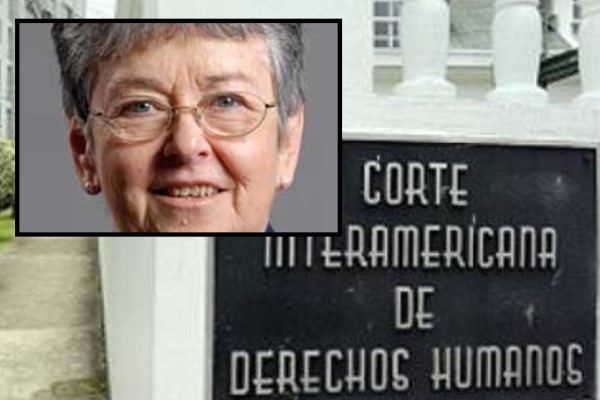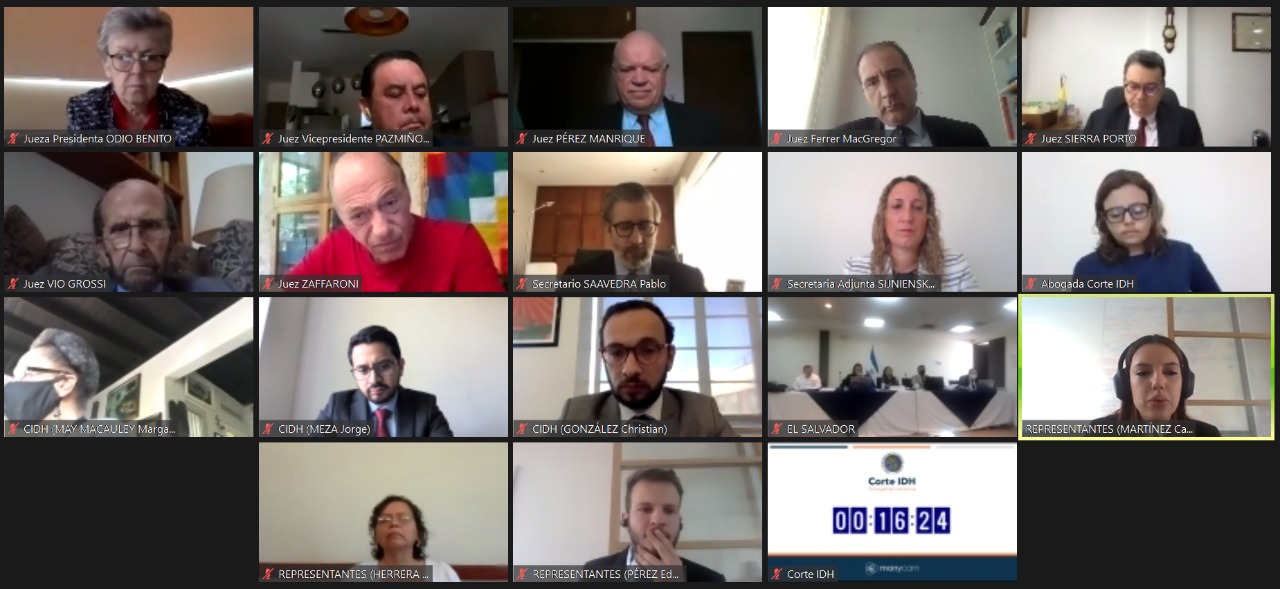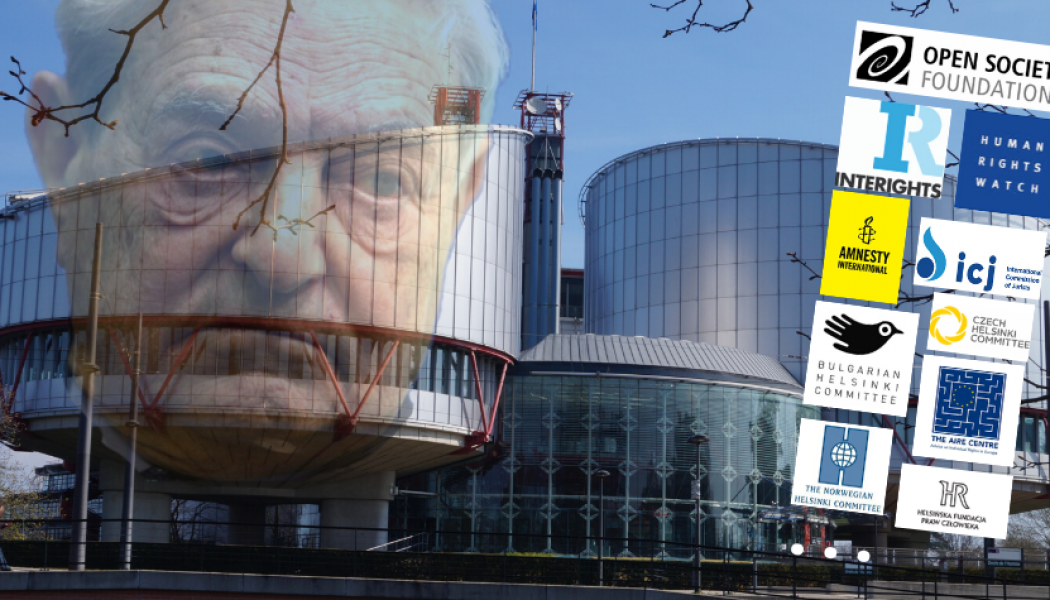PRIVATISATION OF THE HUMAN RIGHTS

By: Grégor Puppinck
Photo: The Inter-American Court/UN/ECLJ/Lesalonbeige
A year ago, the European Centre for Law and Justice (ECLJ) published the report “NGOs and the Judges of the ECHR“, revealing a serious problem of conflicts of interest within the ECHR. Some judges rule on cases in which one of the parties is an NGO of which they were once close collaborators or even founders.
This report sparked a great deal of media and political reaction, and its accuracy has never been disputed. Unfortunately, it collided with the first confinement, and even more so with the fear of questioning a system of power. This fear provokes inertia, silence and finally complicity.
Few political leaders dared to denounce the hold of a few foundations, in particular George Soros’ Open Society, on international bodies. One year after the publication of the report, we make a first assessment of the follow-ups that have been given to it in the media, legal and political spheres.

AMICUS CURIAE
The hearing in the case Manuela v. El Salvador (No. 13.069) will take place on March 10 and 11, 2021 in San José, Costa Rica. The ECLJ intervened as amicus curiae in this case pending before the Inter-American Court of Human Rights.
The Inter-American Court will rule on the following two questions:
- Does the right to privacy imply the recognition of a “right to abortion”?
- Is there such a “right to abortion” even after birth, i.e. a right to kill a newborn baby?
Our written observations in this case can be found here (only in Spanish).
We defended the right to life of children, both unborn and newborn. We also argued that abortion and neonatal infanticide are not a solution for a mother in distress.

POTENTIAL CONFLICTS OF INTEREST
Prior to this hearing, the ECLJ wishes to make public a letter we sent on February 5, 2021 to the President of the Inter-American Court, Ms. Elizabeth Odio Benito. It highlights potential conflicts of interest for the Inter-American Court in this case and asks for clarification of this situation. Ms. Benito has so far not replied.
It is not the first time that the ECLJ denounces conflicts of interest in judicial institutions protecting Human Rights. Our report “NGOs and the Judges of the ECHR 2009 – 2019” gave an overview of the situation for the European Court of Human Rights.
SOROS IS AT THE HEART OF THE PROBLEM
The situation is worse on the other side of the Atlantic, at the Inter-American Court of Human Rights. The Open Society Foundations (OSF), founded by George Soros, is at the heart of the problem. In the case of Manuela v. El Salvador, there are a number of elements that raise suspicions about the impartiality of the Inter-American Court.
The liberal coalition against El Salvador is composed of NGOs, universities and an expert financed by the OSF up to more than $2,000,000 per year.
The President of the Court, Ms. Benito, is currently a member of the International Commission of Jurists (ICJ), after having served on its Board of Directors. This NGO is funded by OSF (≈ $1,300,000 / year).

Ms. Benito has thus strong ties of interest with one of the two parties, which does not allow her to impartially sit in this case.
Other more general questions of impartiality arise at the Inter-American Court.
When they were candidates for the position of judge, some of them underwent a process of evaluation conducted by Open Society in the hope of receiving the backing of the OSF network. Several NGOs support the process conducted by Open society, among which all three applicants in the case of Manuela v. El Salvador.
DEVOID OF AUTHORITY
Humberto Antonio Sierra Porto, the Colombian judge, was endorsed by Open society after having completed this process. If he sits in the case of Manuela v. El Salvador, he will be in a conflict-of-interest.
Last but not least, the Organization of American States (OAS), on which the Inter-American Court depends, receives private funding from the OSF (over $410,000 between 2017 and 2019). It is surprising that the OAS is open to private funding. Above all, the fact that the same NGO finances both the applications before a judicial institution and the organisation on which this judicial institution depends raises an additional problem. The political influence of the OSF, through its financial power, leads to what Gaëtan Cliquennois called a “privatisation” of the Human Rights system.
In the absence of explanations from the Inter-American Court on the questions of judicial ethics raised here, the future judgment in Manuela v. El Salvador will be devoid of authority.



